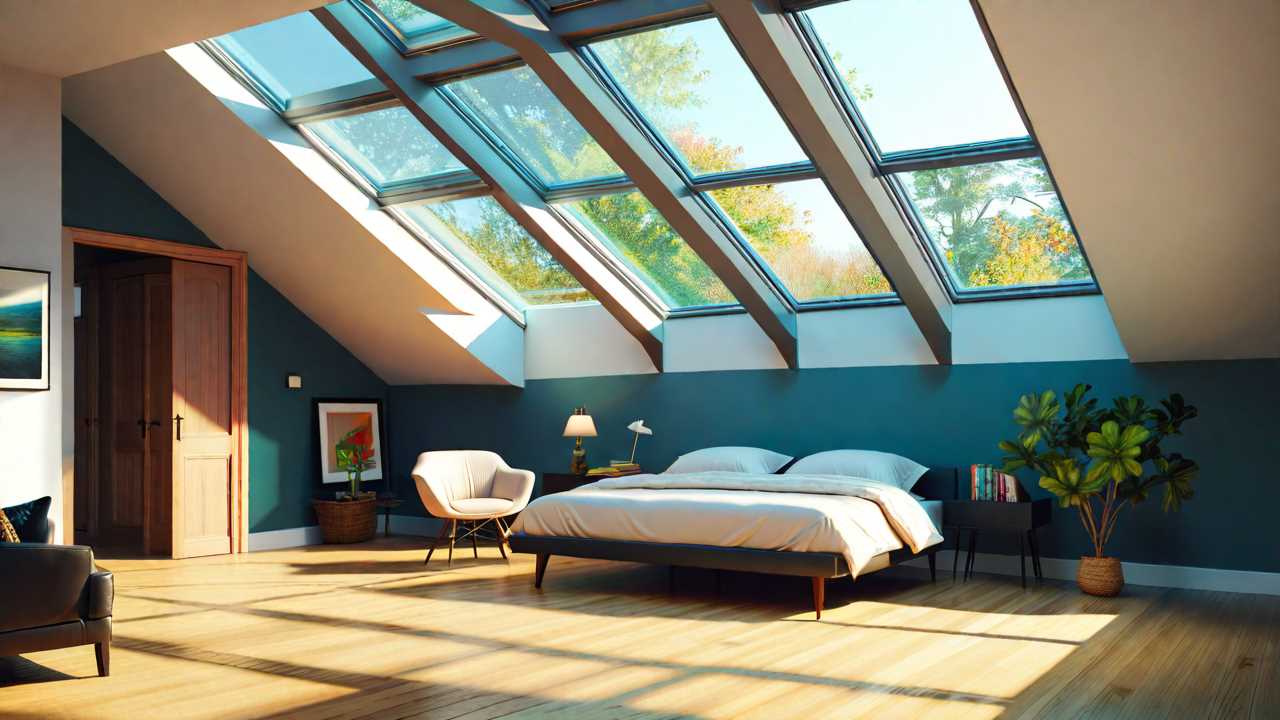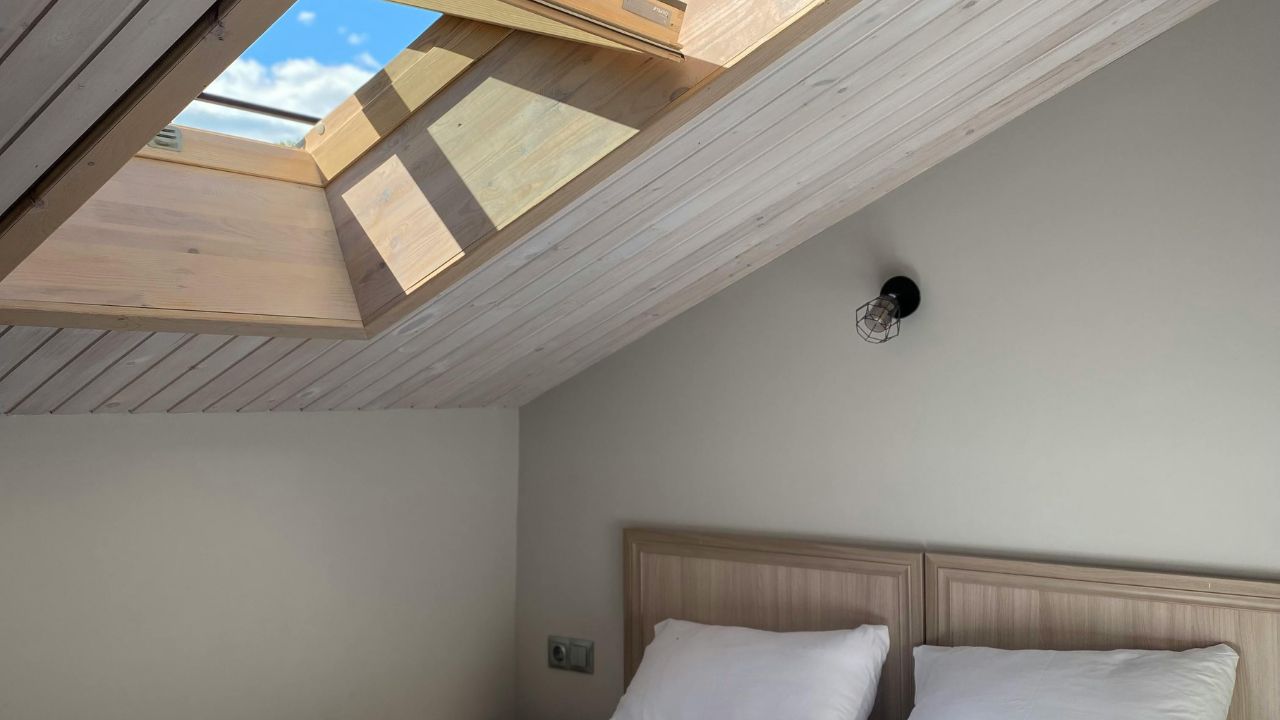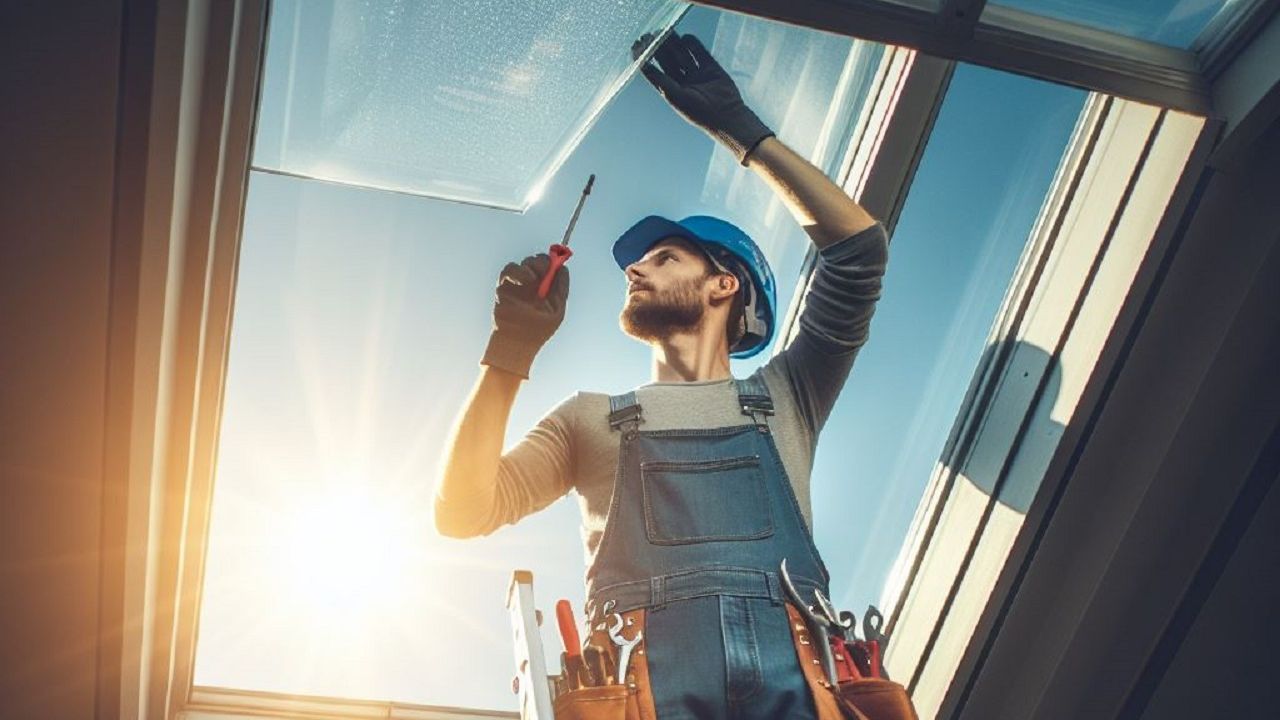
When considering the best type of glass for a skylight, you’ll want to focus on factors like energy efficiency, sunlight transmission, and UV protection. But what if there was a glass that not only met these criteria but also offered self-cleaning properties and reduced glare? The answer lies in a comprehensive evaluation of skylight glass options, taking into account various elements that go beyond the surface. Stay tuned to discover the glass that can transform your skylight into a functional and aesthetically pleasing feature of your space.
Energy Efficiency Considerations
When selecting the best type of glass for a skylight, consider that energy efficiency is essential in reducing heat loss and controlling indoor temperatures. Low-emissivity (Low-E) glass is a popular choice for skylights due to its ability to minimize heat transfer. This type of glass has a thin coating that reflects heat back into the room during cold weather and blocks heat from entering during hot weather, making it ideal for maintaining a comfortable indoor environment year-round.
Another option to improve energy efficiency is double or triple-pane glass. These types of glass feature multiple layers with insulating gas in between, reducing heat conduction and improving thermal performance. Additionally, selecting glass with a high Solar Heat Gain Coefficient (SHGC) can help maximize passive solar heating in the winter while minimizing heat gain in the summer.
To further boost energy efficiency, consider incorporating operable skylights or shades to regulate the amount of sunlight and heat entering your space. Proper installation and sealing are also critical to prevent air leaks and ensure excellent energy performance. By prioritizing energy efficiency in your choice of skylight glass, you can create a more sustainable and comfortable living environment while enjoying the benefits of natural light.
Sunlight Transmission Factors
Consider evaluating the sunlight transmission factors of different types of glass when selecting the best choice for a skylight installation. Understanding how much sunlight is transmitted through the glass is important for optimizing natural light within a space. Here are some key factors to keep in mind:
- Visible Light Transmission: This factor measures the amount of visible light that passes through the glass. Higher values mean more natural light enters the room, creating a brighter and more inviting space.
- UV Protection: Look for glass that offers high UV protection to prevent furniture, flooring, and artwork from fading due to prolonged exposure to sunlight.
- Solar Heat Gain Coefficient: This factor indicates how well the glass blocks heat from the sun. Choosing glass with a lower solar heat gain coefficient can help maintain a comfortable indoor temperature and reduce the need for excessive air conditioning.
Impact of Glass Thickness
Glass thickness significantly impacts the structural integrity and insulation properties of a skylight installation. Thicker glass panes provide better resistance to external forces, such as hail or debris, enhancing the overall durability of the skylight. A thicker glass also helps improve insulation by reducing heat transfer, making it more energy-efficient. However, it’s crucial to find the right balance between thickness and weight to guarantee proper support from the skylight frame.

When choosing the glass thickness for your skylight, consider factors such as the size of the skylight, the surrounding environmental conditions, and the intended use of the space below it. Larger skylights may require thicker glass to support their weight and withstand potential stress. Additionally, if you live in an area prone to severe weather conditions, opting for thicker glass can provide added protection and peace of mind.
UV Protection and Glare Reduction
For ideal UV protection and glare reduction in your skylight, selecting glass with specialized coatings is essential. These coatings are designed to filter out harmful UV rays and minimize glare, providing a more comfortable and safer environment in your space.
When choosing glass for your skylight, consider the following:
- Low-E Coating: Low-emissivity coatings help to reflect heat while allowing visible light to pass through. This can help regulate indoor temperatures and reduce the need for excessive air conditioning during hot days.
- Tinted Glass: Tinted glass can effectively reduce glare and block a certain percentage of UV rays from entering your space. It also adds a touch of style and privacy to your skylight.
- UV-Blocking Technology: Opt for glass that incorporates UV-blocking technology to safeguard your furniture, flooring, and artwork from fading due to prolonged exposure to sunlight.
Self-Cleaning and Maintenance Benefits
To optimize the longevity and efficiency of your skylight, understanding the self-cleaning and maintenance benefits associated with specific glass types is vital. When considering self-cleaning glass for skylights, look for products with a special coating that reacts with sunlight to break down organic dirt and debris, allowing rainwater to wash them away. This feature significantly reduces the need for manual cleaning, saving you time and effort. Additionally, self-cleaning glass helps maintain the skylight’s transparency, ensuring maximum light penetration into your space.
In terms of maintenance, opt for skylight glass that’s durable and resistant to scratches, corrosion, and environmental damage. This choice will minimize the frequency of repairs and replacements, ultimately saving you money in the long run. Regularly inspecting the skylight frame, seals, and mechanisms is also crucial to prevent water leaks and maintain proper functionality. By selecting glass that offers self-cleaning properties and prioritizing maintenance, you can enjoy a clear, efficient skylight that requires minimal upkeep.
Frequently Asked Questions
Can Different Types of Glass Affect the Skylight’s Soundproofing Capabilities?
Yes, different types of glass can significantly impact a skylight’s soundproofing abilities. Thicker glass with laminated layers tends to be more effective at reducing noise infiltration. Consider this when choosing the right glass for your skylight.
Are There Options for Frosted or Tinted Glass for Privacy Concerns?
When considering privacy concerns for skylights, options like frosted or tinted glass are available. These choices allow you to maintain your desired level of privacy while still benefiting from natural light in your space.

How Does the Glass Type Impact the Skylight’s Resistance to Condensation?
Imagine the glass type as a shield against condensation. Low-E coated glass reduces heat loss and minimizes condensation. Insulated glass units with argon gas improve resistance. Choose wisely to enjoy a clear view without moisture troubles.
Can the Choice of Glass Affect the Skylight’s Ability to Withstand Extreme Weather Conditions?
When considering your skylight’s durability in harsh weather, the glass type plays a key role. Opt for tempered or laminated glass for superior strength against extreme conditions like hail or heavy snow, ensuring your skylight withstands nature’s forces.
Are There Options for Anti-Reflective Coatings to Improve Visibility Through the Skylight?
Like a clear lens, anti-reflective coatings minimize glare, enhancing visibility through skylights. Options vary, offering choices to suit your needs. Utilize these coatings to optimize your skylight experience and enjoy unobstructed views.